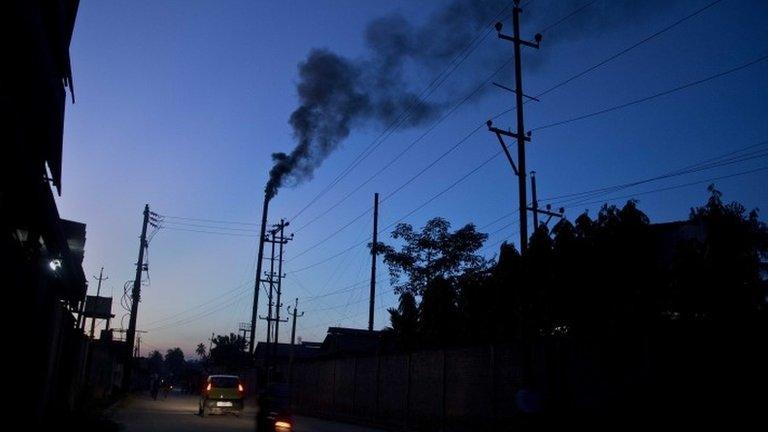Paris climate deal: Life on a vanishing ice highway in Canada
- Published
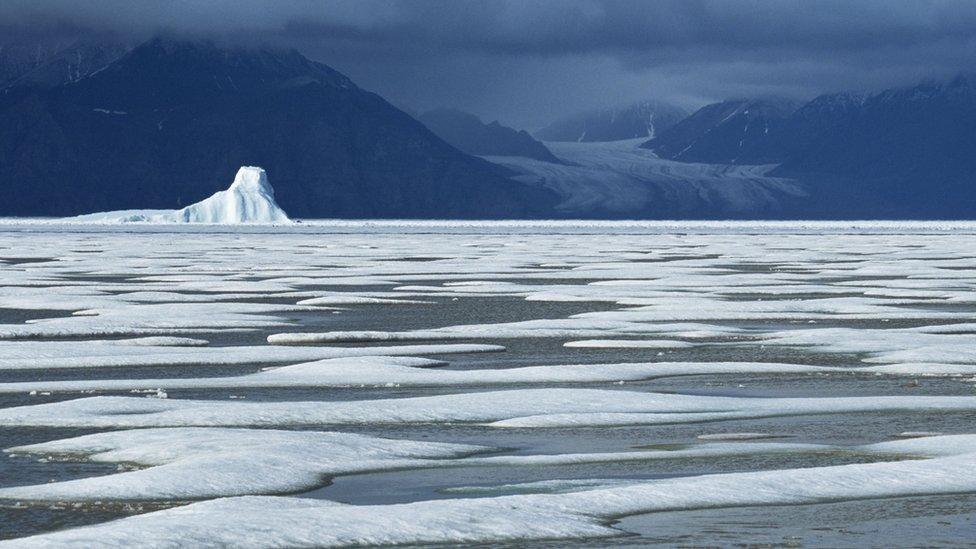
The frozen sea near Baffin Island, Canada
Andrew Arreak spends much of the winter out on the sea ice in Canada's far north, tracking the changes in ice conditions caused by climate change.
Mr Arreak lives in Pond Inlet, Nunavut, a mostly Inuit hamlet on the northern tip of Baffin Island near the eastern entrance of the Northwest Passage.
He's the research coordinator for the sea-ice monitoring and real-time information for coastal environments , external(SmartICE) project, which uses technology, remote sensing, and Inuit knowledge to monitor the state of sea ice in northern Labrador.
The sea ice is used by the Inuit as a winter ice highway for regional travel, hunting and trapping.
"During the winter, some areas are getting unpredictable to travel on," Mr Arreak told the BBC over the phone from Pond Inlet.
It's estimated that the region has lost 73% of its sea ice cover over the last 40 years.
On Wednesday, some 1,865 miles (3,000km) south of Pond Inlet in Ottawa, where the impacts of climate change is not being felt as immediately as in the Arctic, Canadian legislators voted to approve the Paris global climate agreement.
The 207-81 vote helped the Paris agreement reach the threshold of being ratified by 55 countries representing at least 55% of global emissions. It will now come into force globally on 4 November, 30 days after meeting that ratification threshold.
US President Barack Obama marked that occasion in a statement outside the White House on Wednesday.
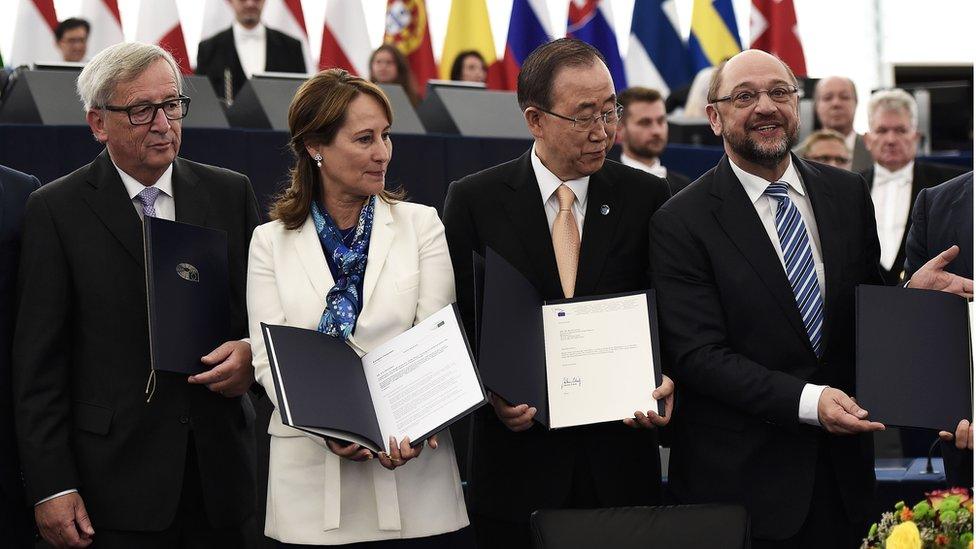
European Commission's President Jean-Claude Juncker, France's Minister for Ecology, Sustainable Development and Energy Segolene Royal, UN Secretary-General Ban Ki-moon, and European Parliament President Martin Schulz pose after EU ratification of the UN Climate Change agreement
"This is an historic day in the fight to protect our planet for future generations,'' he said.
Canada's ratification of the accord follows on the heels of the successful European Parliament vote earlier this week. Major polluters Unites States and China ratified the accord in September. , external
The Paris deal aims to limit those emissions and keep global temperature increases "well below" 2C.
Canada produces just under 2% of global greenhouse gas emissions annually. The US produces about 18%, China 20%. The UK contributes 1.5%.
As part of Canada's efforts to meet its climate targets under the Paris accord, Liberal Prime Minister Justin Trudeau announced on Monday the federal government would set a minimum national price on carbon starting at CA$10 ($7.5/£6) per tonne in 2018 and increasing to CA$50 ($38/£30) per tonne in 2022 - a floor price all 10 provinces and three territories would have to meet.
Provinces will be given the choice on how to implement the tax on carbon emissions.
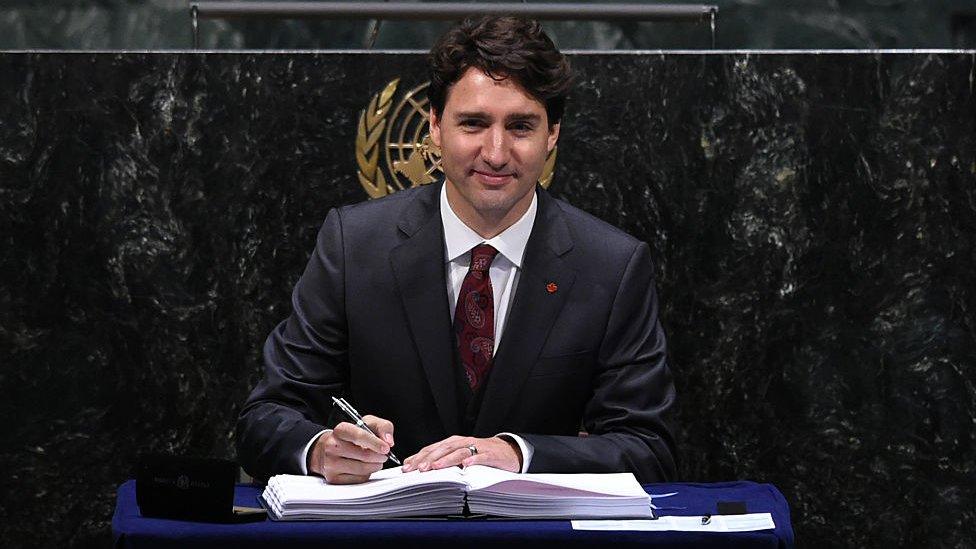
Justin Trudeau signs the Paris climate change accord in April
Over 80% of Canadians already live in jurisdictions with some type of carbon pricing or cap-and-trade plan in place or in the works, including the heavily populated provinces of Quebec, Ontario and British Columbia.
Still, the plan received strong pushback from a number of provincial leaders, including Saskatchewan Premier Brad Wall, who criticised Mr Trudeau's unilateral announcement in the House of Commons as a "betrayal" and Nova Scotia Premier Stephen McNeil, who said he wouldn't implement the federal plan.
The opposition federal Conservatives have also been critical of Mr Trudeau's policies to meet Canada's international obligations and MPs voted against the Paris deal's ratification.
"We don't believe he has a plan, we just believe he's going to tax Canadians heavily," said federal Conservative interim leader Rona Ambrose.
Environmental groups however, are calling the national price on carbon good first step.
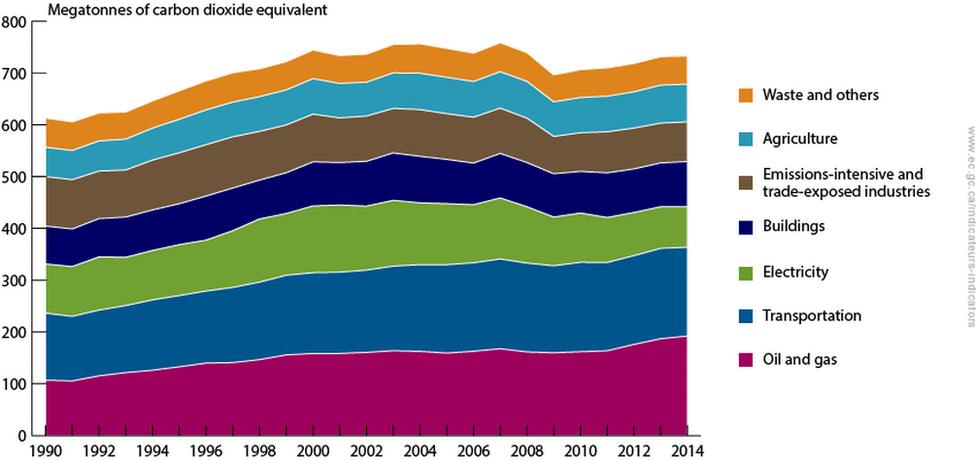
Greenhouse gas emissions by economic sector, Canada, 1990 to 2014
Mark Cameron, executive director for Canadians for Clean Prosperity, an advocacy organisation that pushes for economic and environmental sustainability, said it sets Canada "on the right path" but will take more efforts to meet the targets.
Canada has made a commitment to reducing its emissions by 30% below 2005 levels by 2030, in line with the former Conservative government's target.
"A lot of people suggest that's a weak target, I don't think that's the case," Mr Cameron said.
"I think it's actually quite a difficult target given Canada's type of economy, a natural resource economy."
Canada ranks among the world's top 10 energy producers.
Catherine Abreu, executive director of Climate Action Network Canada, argues the country needs to move away from developing those oil and gas reserves in order to meet its commitments.
"We're still locked into a story in Canada that prosperity means pollution," she said, pointing to Mr Trudeau's recent approval - with conditions - of the construction of a Pacific NorthWest LNG project, a major liquefied natural gas terminal on the country's west coast.
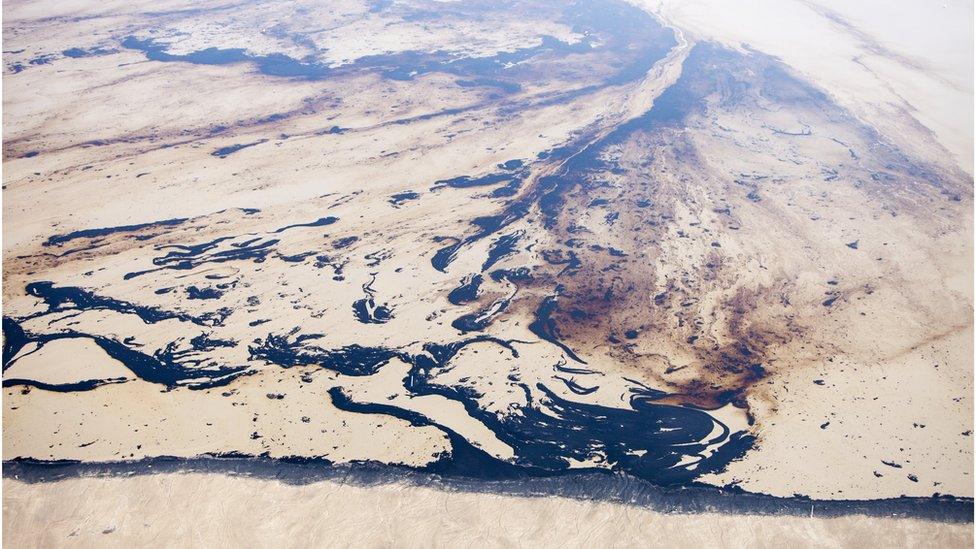
Oil sands in Canada
She also noted many federal promises "are still locked up in the consultation stage".
Between 1948 and 2013, Canada's annual average temperature increased by 1.6C, a higher rate than most other regions in the world, according to federal government data.
While the trend is seen consistently across the country, the strongest effects have been observed in the Arctic, something Mr Arreak said people in his community can testify to.
Many have lost confidence in the safety of traditional sea ice trails used for centuries and are relying on his work with SmartICE to keep them safe.
"I love being out there on the ice," Mr Arreak said.
"It's our main highway, it's where we go to our camping areas, our harvesting areas, a family gathering place for us. I just want people to stay safe, travel safe around the ice and to come home safely."
- Published21 September 2016
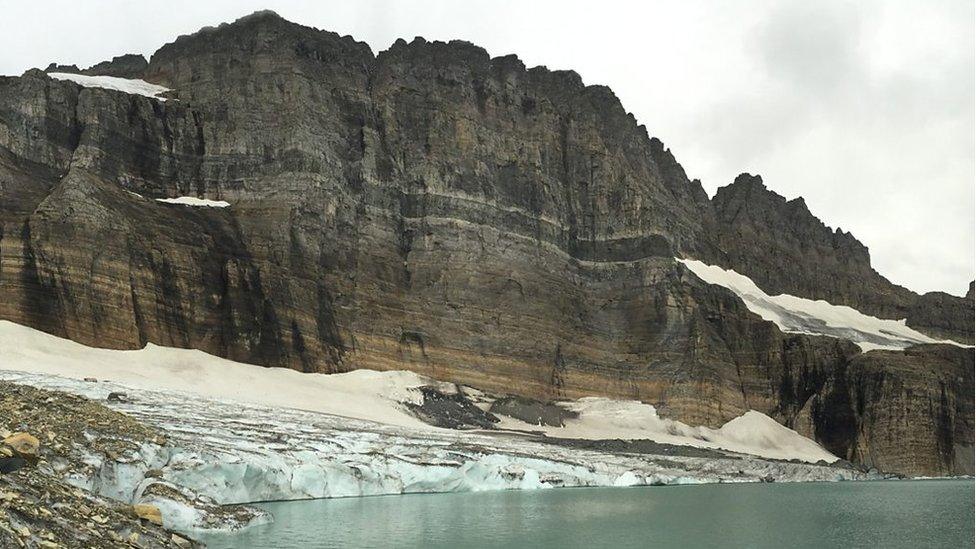
- Published5 October 2016

- Published3 October 2016
